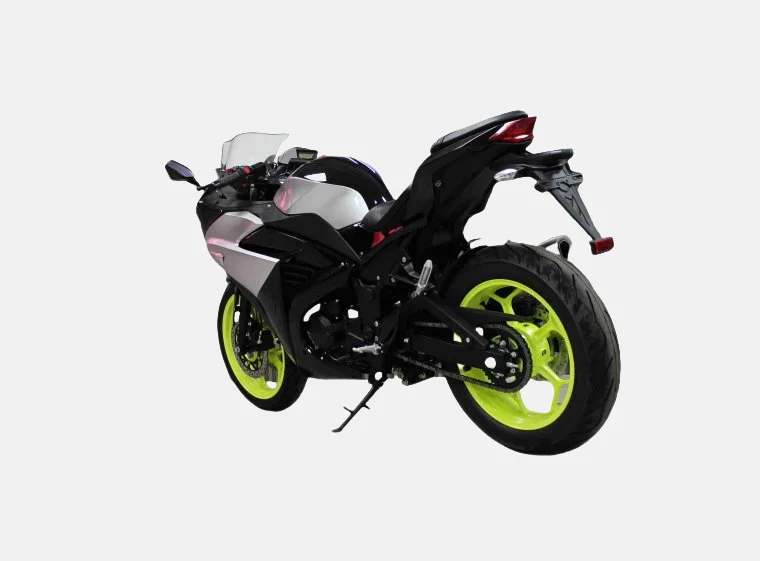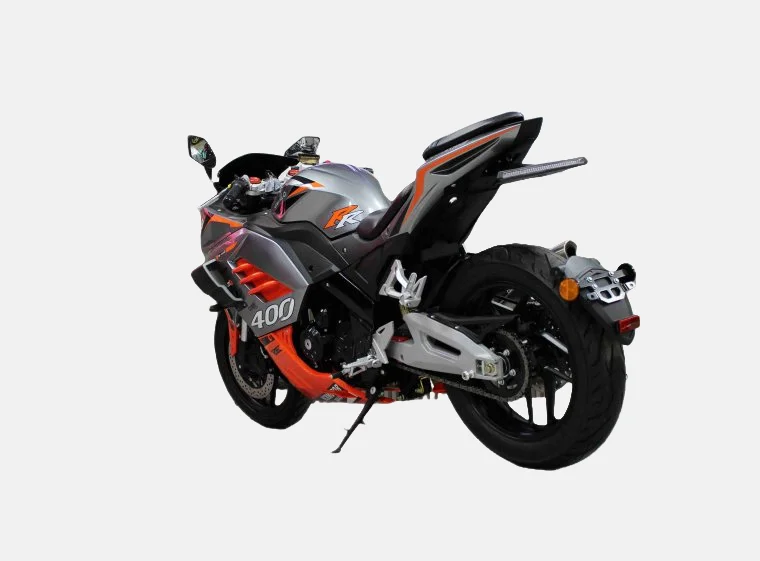For many motorcycle enthusiasts, owning a gasoline motorcycle is more than just a means of transportation; it's a lifestyle. However, for beginners, the sheer variety of models on the market can make it difficult to make a quick decision. How should a beginner choose a gasoline motorcycle? Which type should you choose for different purposes? This article will provide comprehensive selection advice to help you quickly get started and find the gasoline motorcycle that's best for you.
1. Clarify Your Purpose
Before purchasing a gasoline motorcycle, you must first clarify your purpose. Different scenarios require different motorcycles. Here are some common uses:
Urban commuting: If you're commuting in the city, a gasoline motorcycle suitable for urban commuting is a good choice. These models are typically lightweight, maneuverable, and fuel-efficient, making them ideal for navigating urban roads.
Long-distance riding or touring: Those who enjoy motorcycle travel will want a model with long range and excellent comfort. Such gasoline motorcycles often feature large fuel tanks, good suspension, and an ergonomic seating position. Recreational or Off-Roading: If you're focused on handling and speed, consider motorcycles with higher performance and a larger displacement, or models designed specifically for off-roading.
Clearly defining your usage needs will help you accurately select from the many gasoline motorcycle models available, avoiding blindly following trends.
2. Familiarizing Yourself with the Basic Types of Gasoline Motorcycles
There are many different types of gasoline motorcycles on the market, which can be broadly categorized by their intended use:
Scooters: These are most common in urban areas and are often the preferred gasoline motorcycle for women. They are easy to operate, require no shifting, are lightweight, and are relatively affordable, making them ideal for commuters and novice riders.
Street Bikes: With their stylish appearance and strong handling, street bikes are suitable for those with a certain level of driving experience. Displacements range from 125cc to 500cc, and beginners can choose a smaller entry-level model and upgrade as they gain experience.
Off-Road Bikes: Off-road bikes are designed with greater emphasis on maneuverability and shock absorption, making them suitable for off-road driving and rough terrain, rather than daily commuting. If you enjoy outdoor adventures, consider this type of model. Sport Bikes: They have a cool look and powerful performance, but they're not very beginner-friendly. The leaning riding position puts strain on the waist and arms, making them more suitable for riders with some driving experience.

3. Key Factors in Choosing a Gasoline Motorcycle for Beginners
3.1 Displacement Selection: Start Small
For beginners, it's recommended to start with a small-displacement gasoline motorcycle between 125cc and 250cc. This allows you to hone your driving skills without putting excessive pressure on the controls. Higher-displacement motorcycles, while powerful, are also more challenging to control and carry a higher risk.
3.2 Seat Height and Weight: Comfort is Key
When choosing a gasoline motorcycle that's right for you, be sure to test ride it. Can your legs maintain firm contact with the ground? Can the weight of the motorcycle be easily pushed? If you're petite, choose a model with a seat height under 750mm and a weight under 120kg for easier control.
3.3 Handling Experience: Test Drive is Essential
No matter how many specifications you have, there's nothing better than a personal test drive. A test drive can help you determine whether the vehicle's brakes, throttle, steering, and shock absorption are smooth to use. For beginners, a gasoline motorcycle with a linear throttle, light clutch, and sensitive brakes will significantly reduce the learning curve.
3.4 Fuel Consumption and Maintenance: Economy and Practicality Are More Important
When getting started, it's not recommended to blindly pursue high performance. Instead, prioritize gasoline motorcycles with low fuel consumption. Furthermore, checking whether accessories are easily replaceable and maintenance-friendly is also a crucial step before purchasing. After all, the cost of using a motorcycle is reflected not only at the time of purchase but also in its long-term maintenance.

4. Avoiding Purchasing Mistakes
4.1 Blindly Pursuing Appearance
Many beginners are easily seduced by appearance when purchasing a motorcycle, overlooking practicality. A gasoline motorcycle that suits you should be a handy companion during use, not just a prop for photo ops.
4.2 Is a Larger Displacement Better?
One misconception is that a larger displacement motorcycle represents a higher level of performance. This is not true. Displacement is simply a measure of engine output and does not guarantee overall vehicle performance. Beginners should avoid overly ambitious goals. Excessive displacement can actually increase control difficulty.
4.3 Does Low Price Mean Affordable?
When choosing a gasoline motorcycle, it's important to consider your budget, but don't just focus on price. Some ultra-low-priced models may pose safety risks or be difficult to maintain. A comprehensive evaluation should include performance, reputation, after-sales service, and other factors to maximize value for money.
5. How to Evaluate Whether a Gasoline Motorcycle is Worth Buying?
From a beginner's perspective, consider the following aspects:
Safety: Braking system (disc brakes are better than drum brakes), anti-skid performance, headlight brightness, etc.
Power Performance: Does it meet your daily riding needs?
Stability and Handling: Is cornering agile? Is acceleration smooth?
Comfort: Does it tire you easily after long rides?
User Reviews and Feedback: Online riding videos and forum reviews can provide valuable references.
Value Retention: Models with high value retention are easier to sell in the used market and offer lower losses.
6. Beginner's Advice: Riding safety is more important than speed.
No matter which gasoline motorcycle you choose, safety always comes first. New riders should develop good riding habits, wear a proper helmet and protective gear, and strictly obey traffic rules. Furthermore, professional motorcycle driving training is recommended to lay a solid foundation.
A gasoline motorcycle is more than just a means of transportation; it's an expression of a lifestyle. Choosing the right model not only makes commuting more efficient and traveling more free, but also provides endless driving pleasure. We hope this practical buying guide will help you avoid purchasing pitfalls and rationally select a high-quality gasoline motorcycle that's right for you.
As a professional gasoline motorcycle supplier, we understand that every customer's needs are unique. Therefore, we are committed to providing a diverse and high-quality selection of models to meet the needs of riders from beginners to experienced riders. Whether for urban commuting, leisure and recreation, long-distance touring, or off-road adventures, we can recommend the most suitable powertrain configuration and model. We prioritize vehicle safety and handling, ensuring that every motorcycle leaves the factory undergoes rigorous quality testing, providing customers with peace of mind and reliability. Through professional pre-sales consultation and comprehensive after-sales service, we help customers easily select the gasoline motorcycle they desire and embark on a safe, comfortable, and enjoyable riding journey.
www.jilangmotor.com
JILANG
About Author
You may also like
-
Beyond the Horizon: How OHMIEX Builds Communication Gear Riders Can Truly Trust
-
Карго перевозки Китай–Россия под ключ: комплексные логистические решения от компании «Интербиз»
-
Why Choosing the Right FBA Air Express Shipping Service Forwarder Matters for Amazon Sellers
-
Enhance Your BYD 550 with Original BYD Parts 1312461000 High Efficiency Filter
-
FBA Air Express Shipping Service Forwarder: How to Deliver Amazon Inventory Faster and Safer
